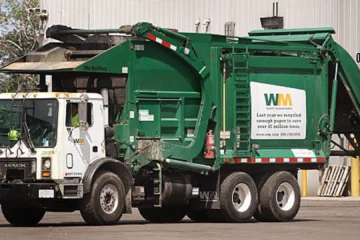Buying property in Thailand can be a thrilling venture, but it’s not something to jump into without guidance. You need to know the ins and outs of the market, especially if you’re eyeing those stunning Phuket luxury villas for sale. This guide is here to help you find the right experts, such as a Phuket real estate agent, to lead you through the process, making sure you know what to look for and who to trust..
Key Takeaways
- Research the Thai property market thoroughly to spot trends and identify hot spots.
- Local real estate agents can offer insights and make the buying process smoother.
- Legal advice is a must to ensure everything’s above board and your rights are protected.
- Do your homework with property checks and title verifications to dodge any nasty surprises.
- Sharpen your negotiation skills to get the best deal possible.
Understanding The Thai Property Market
Current Trends In Phuket
Phuket’s property scene is buzzing with activity. The demand for Phuket villas for sale is on the rise, driven by both local and international buyers seeking luxurious getaways. Luxury real estate in Phuket is not just about opulence; it’s also about investment potential. The island’s tourism boom has made it a hotspot for property investors, with many opting for villas due to their high rental yields.
Popular Areas For Investment
When it comes to investing in Thailand, Phuket stands out, but it’s not the only player in the game. Areas like Bangkok and Pattaya are also worth a look. Here’s a quick look at some popular investment areas:
- Phuket: Known for its stunning beaches and vibrant nightlife, it’s ideal for those interested in luxury villas.
- Bangkok: The bustling capital offers a mix of condominiums and commercial properties.
- Pattaya: Famous for its resort-style living, it’s perfect for beachfront properties.
Market Insights For Foreign Buyers
For foreign buyers, understanding the local market dynamics is key. Thailand’s property market has its quirks, especially for non-citizens. Foreigners can own condominiums but face restrictions on land ownership. Engaging with local experts can help navigate these complexities. It’s also wise to keep an eye on currency fluctuations and legal requirements, as these can impact your investment’s profitability.
Investing in Thailand’s property market requires a strategic approach. Understanding local laws and market trends can make all the difference in securing a successful investment.
Legal Considerations For Foreign Buyers
Finding A Reputable Property Lawyer
When you’re thinking about buying property in Thailand, getting a good property lawyer is a must. You want someone who knows Thai property laws inside out. Here’s how to find one:
- Research: Look for lawyers who specialise in Thai real estate. Check their credentials and see what past clients say.
- Consultation: Meet with a few lawyers to discuss your needs. See how they plan to help you.
- Fees: Ask about their fees upfront. Make sure there are no hidden costs.
Understanding Legal Documentation
Navigating legal documents in a foreign country can be tricky. Here are some things to keep in mind:
- Contracts: Make sure all contracts are in both Thai and your language. This avoids misunderstandings.
- Due Diligence: Verify the legal status of the property. Check for any legal issues or claims.
- Ownership Restrictions: Foreigners face limits on what they can own. For instance, condos have a 49% foreign ownership cap.
Common Legal Pitfalls To Avoid
Buying property in Thailand has its legal challenges. Here are some common mistakes to watch out for:
- Misunderstanding Ownership Rules: You can’t own land outright, but you can own buildings or lease land for up to 30 years.
- Skipping Due Diligence: Not thoroughly checking a property’s legal status can lead to big problems later.
- Ignoring Legal Advice: Trying to save money by skipping legal help can cost you more in the long run.
It’s not just about buying a property; it’s about making sure everything is legally sound. A good lawyer will help you steer clear of trouble, ensuring your investment in Thailand is safe and secure.
Conducting Due Diligence
Property Inspections
When you’re eyeing a property in Thailand, a thorough inspection is a must-do. This isn’t just about a quick glance; it’s about digging deep into the property’s condition. Check every nook and cranny for structural issues, water damage, or electrical problems. If you’re buying from afar, ask the realtor for a virtual tour or a detailed video. These inspections can save you from nasty surprises later on.
Verifying Ownership And Titles
Before you sign anything, make sure the property’s title is legit. This means confirming the seller actually owns what they’re selling and that there are no legal hiccups like disputes or encumbrances. Do a title deed search to ensure everything matches up. Any mismatch can lead to headaches and extra costs down the line.
Assessing Risks And Liabilities
It’s not just about the property itself. You need to look at potential risks and liabilities. Are there zoning laws or environmental rules that might affect your plans? How stable is the property developer financially? Do they have a solid track record? A good developer can make or break your investment. Always do your homework and maybe even chat with some local real estate pros to get the lowdown.
Navigating Financial Regulations

Understanding Financing Options
When you’re thinking about buying property in Thailand, figuring out your financing options is a big deal. Local banks like Bangkok Bank and United Overseas Bank do offer home loans to foreigners, but the choices might not be as broad as you’d hope. If you’re considering an international mortgage, know that there are specific criteria you’ll need to meet. Also, opening a personal bank account in Thailand can really smooth out the process of handling transactions and keeping your money safe.
Currency Exchange Considerations
Dealing with currency exchange can be a bit of a headache. You need to make sure all payments for the property are made in a foreign currency and then converted to Thai Baht within Thailand. This involves filling out a Foreign Exchange Transaction Form (FETF), which is basically proof of the currency swap. Keep an eye on exchange rates to make sure you’re getting a good deal, and watch out for any transfer fees that might sneak up on you.
Planning your finances carefully and getting a grip on how local banks work can make buying property in Thailand a lot easier.
Tax Obligations For Property Buyers
Owning property in Thailand comes with its own set of tax responsibilities. You’re looking at annual property taxes based on the assessed value of your property. Plus, there are fees for things like garbage collection and keeping up local infrastructure. It’s crucial to stay on top of these obligations to avoid any legal hiccups down the line.
In short, getting a handle on the financial aspects of buying property in Thailand is all about preparation and understanding the local systems. With the right knowledge and planning, you can make your property purchase a smooth experience.
Effective Negotiation Strategies
Preparing For Negotiations
When stepping into the negotiation ring, preparation is your best ally. Start by gathering all the necessary information about the property and the market. Knowing the market value is crucial. Look at recent sales in the area to understand the going rates. This data will be your backbone during discussions. Also, have a clear picture of your budget and the maximum you’re willing to spend. Being firm on your financial limits can prevent you from making hasty decisions.
Understanding Market Value
Grasping the true market value of a property isn’t just about numbers. It involves understanding the property’s potential, location benefits, and any unique features it might have. Properties that linger on the market might signal room for negotiation. If a property has been listed for a long time, it could indicate that the seller is more open to offers. Always compare similar properties in the area to set a fair offer.
Closing The Deal Successfully
The final step is sealing the deal, which requires tact and timing. Make your offer compelling by backing it up with the data you’ve collected. Be ready to walk away if the terms don’t suit you—that’s a powerful negotiation tactic. Keep the communication lines open and professional. Sometimes, the seller might counter-offer, and being open to negotiations can lead to a win-win scenario. Remember, the goal is not just to get a good price but to ensure the property aligns with your long-term plans.
Successful negotiation is about balance. It’s not just about the lowest price, but about securing a deal that fits your financial plans and property goals.
Exploring Property Types In Thailand
Luxury Villas In Phuket
Phuket is famed for its luxury villas, which are often nestled in scenic spots with ocean views. These properties are a favourite among high-net-worth individuals and are often used as holiday homes or rental investments. The allure of Phuket’s villas lies in their spaciousness and privacy, offering a serene retreat from bustling city life. When buying a villa here, consider the maintenance costs and potential rental income.
Condominiums And Apartments
In Thailand, condos and apartments are popular choices, especially in urban areas like Bangkok and Pattaya. These properties are ideal for those seeking a modern lifestyle with amenities like pools and gyms. Condos can be a smart investment due to high rental demand among expatriates and locals alike. When choosing a condo, pay attention to the building’s management quality and any associated fees.
Land Purchases And Developments
Buying land in Thailand can be a worthwhile investment, especially if you’re looking to develop the property yourself. However, it’s crucial to understand the legal restrictions on foreign land ownership. Many opt for a long-term lease or set up a Thai company to facilitate land purchases. Always conduct thorough due diligence to verify land titles and assess development potential.
Investing in property in Thailand offers diverse opportunities, whether you’re looking for a luxury villa, a convenient condo, or land for development. Each option comes with its own set of considerations, making it important to weigh the pros and cons carefully before making a decision.
If you’re curious about the different types of properties available in Thailand, now is the perfect time to explore! From stunning villas in Phuket to charming apartments in Samui, there’s something for everyone. Visit our website to discover your ideal property and start your journey today!
Conclusion
So, there you have it. Buying property in Thailand isn’t just about finding a nice spot with a view. It’s about getting the right folks on your side to help you through the maze. Whether it’s a savvy real estate agent or a sharp lawyer, having the right team makes all the difference. Do your homework, ask the right questions, and don’t rush. With the right help, you can make your dream of owning a piece of paradise a reality. Just remember, it’s not just about the property, it’s about the journey and the people who help you along the way.
Frequently Asked Questions
Can foreigners buy property in Thailand?
Yes, foreigners can buy certain types of property in Thailand, such as condos, but there are restrictions on land ownership.
Why should I hire a local real estate agent?
Local agents know the market well and can help you find good deals, avoid scams, and understand local laws.
What are the common mistakes to avoid when buying property in Thailand?
Some common mistakes include not hiring a lawyer, skipping property inspections, and not understanding legal restrictions.
Do I need a lawyer to buy property in Thailand?
Yes, hiring a lawyer is important to ensure all legal documents are correct and to protect your interests.
What is due diligence in property buying?
Due diligence involves checking the property’s legal status, inspecting the property, and verifying ownership to avoid risks.
How can I finance a property purchase in Thailand?
You can explore different financing options, including local banks, but it’s important to understand currency exchange and taxes.


